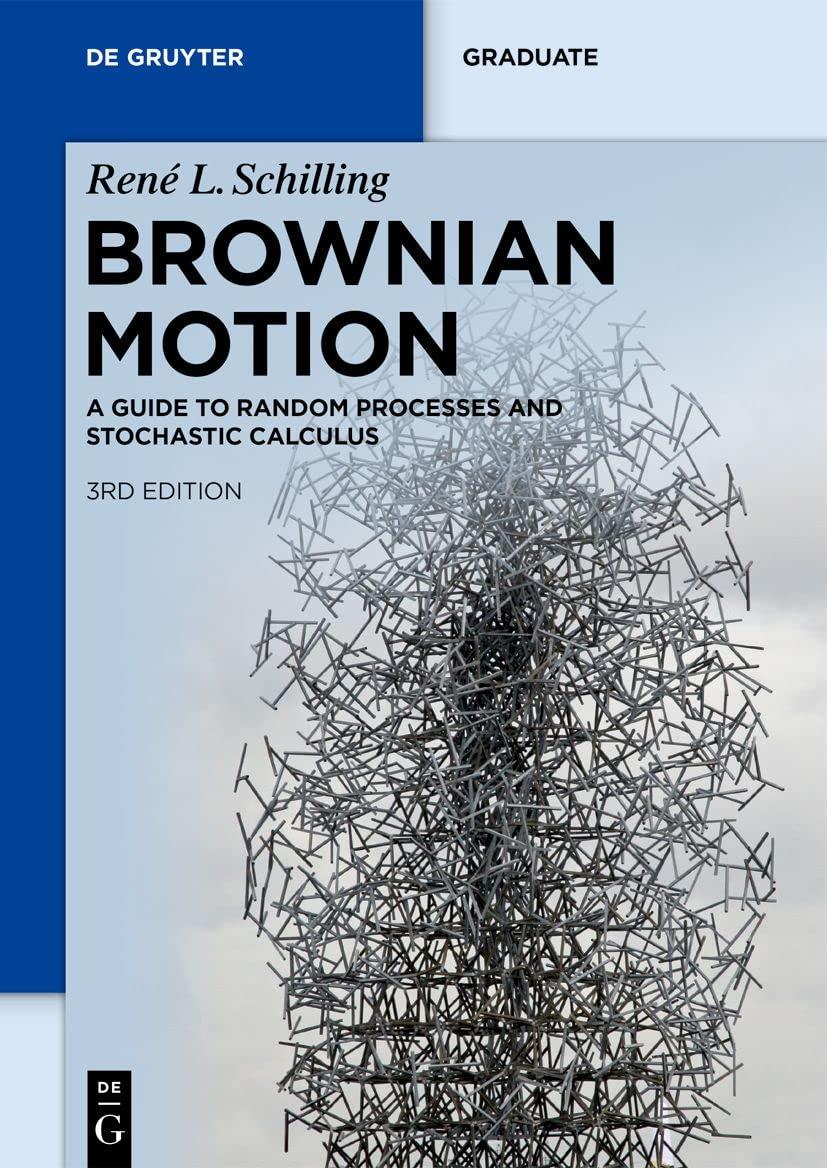Let (u in mathcal{H}^{1}) and denote by (Pi_{n}, n geqslant 1), a sequence of partitions of ([0,1])
Question:
Let \(u \in \mathcal{H}^{1}\) and denote by \(\Pi_{n}, n \geqslant 1\), a sequence of partitions of \([0,1]\) such that \(\lim _{n ightarrow \infty}\left|\Pi_{n}ight|=0\). Show that the functions
\[f_{n}(t)=\sum_{t_{j}, t_{j-1} \in \Pi_{n}}\left[\frac{1}{t_{j}-t_{j-1}} \int_{t_{j-1}}^{t_{j}} u^{\prime}(s) d sight]^{2} \mathbb{1}_{\left[t_{j-1}, t_{j}ight)}(t), \quad n \geqslant 1\]
converge for \(n ightarrow \infty\) to \(\left[u^{\prime}(t)ight]^{2}\) for Lebesgue almost all \(t\).
Fantastic news! We've Found the answer you've been seeking!
Step by Step Answer:
Related Book For 

Brownian Motion A Guide To Random Processes And Stochastic Calculus De Gruyter Textbook
ISBN: 9783110741254
3rd Edition
Authors: René L. Schilling, Björn Böttcher
Question Posted:





